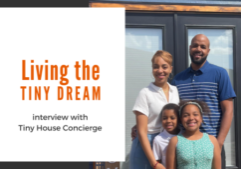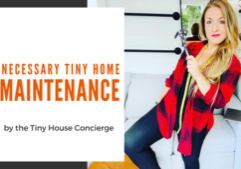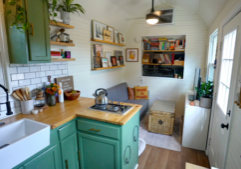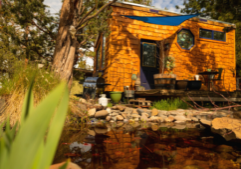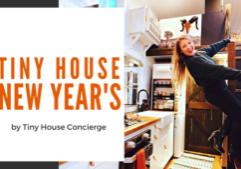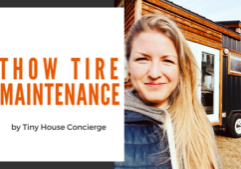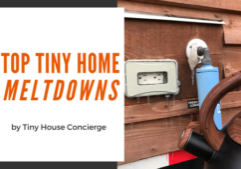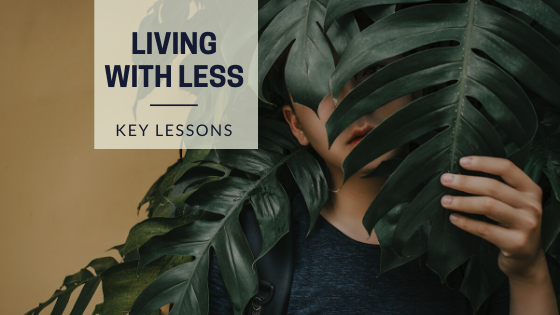
We Can Learn a Lot from Living with Less, and Here’s Exactly How
Living simplistically – or minimally – has become somewhat of an interior design trend in recent years
The act of living with less in order to optimise and maximise space really took off in 2019, with some of the world’s leading interior designers jumping aboard the trend with no hesitation.
But what does it really mean to live with less? Sure, it’s aesthetically pleasing, but does it go further than that?
The answer is, without doubt, yes. It’s not just about the way a space looks, but the way it feels, and ultimately the way it makes us as human beings think, feel and behave.
It’s surprising how much you can learn from living with less, no matter the size of your home, and today we’re going to be exploring exactly that.
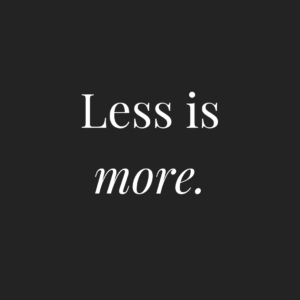
Its Origin
Sure, property buyers will be immediately attracted to a space that's used minimally because of its beauty, but what the true art of minimalism actually mean and where did it begin?
Flashback to Japan thousands of years ago, the art of Zen Buddhism began to influence how people lived and ultimately decorated their homes. It goes entirely against the rise of modern consumerism and greed. Instead, it aims to simplify life by stripping it back to its bare essentials to stop us from becoming distracted from what really matters.
In design terms, it's all about keeping a room balanced and uncluttered.
The bare serenity of minimalism is supposed to teach us the art of living with less, and how it can positively benefit our minds.
Think about it, we're all so busy now, and it's rare that we even get a chance to slow down. Our minds are continually racing, and we feel constantly connected to the rest of the world, making "you time" feel almost impossible most days.
Without thinking about aesthetics and trends, and by merely considering the tradition of minimalism in its origin, we give ourselves time.
Time to think, time to switch off, and time to just be. What a revolutionary concept in this modern world!
It follows that stripping back your home can, surprisingly, teach you a lot about what is important to you.
It Teaches us to be More Sustainable
It's no secret that we're living in an age where sustainability is more important than ever before. The climate emergency that the world is facing is at the forefront of the media at present, with celebrity names like David Attenborough pleading with the public to change the way they live to help save the planet.
One way we can do this is by wasting less and being more resourceful by practicing sustainable living.
The less you have, the less you're likely to waste.
When people are constantly swapping out their furniture and are actively consuming new things, the demand for production becomes greater, meaning that more materials are being used and wasted than is necessary. This ultimately is not good for the planet.
If more people could learn to live with less, and even recycle what they use in their homes, then they would automatically live a greener lifestyle.
Secondhand shopping and upcycling are up on the trends list right now, which bodes well in favor of eco-friendly consumerism.
This is helping popularize the idea that if you need/want something "new", it can likely be found on Facebook Marketplace, thredUP, Habitat Restore, etc.
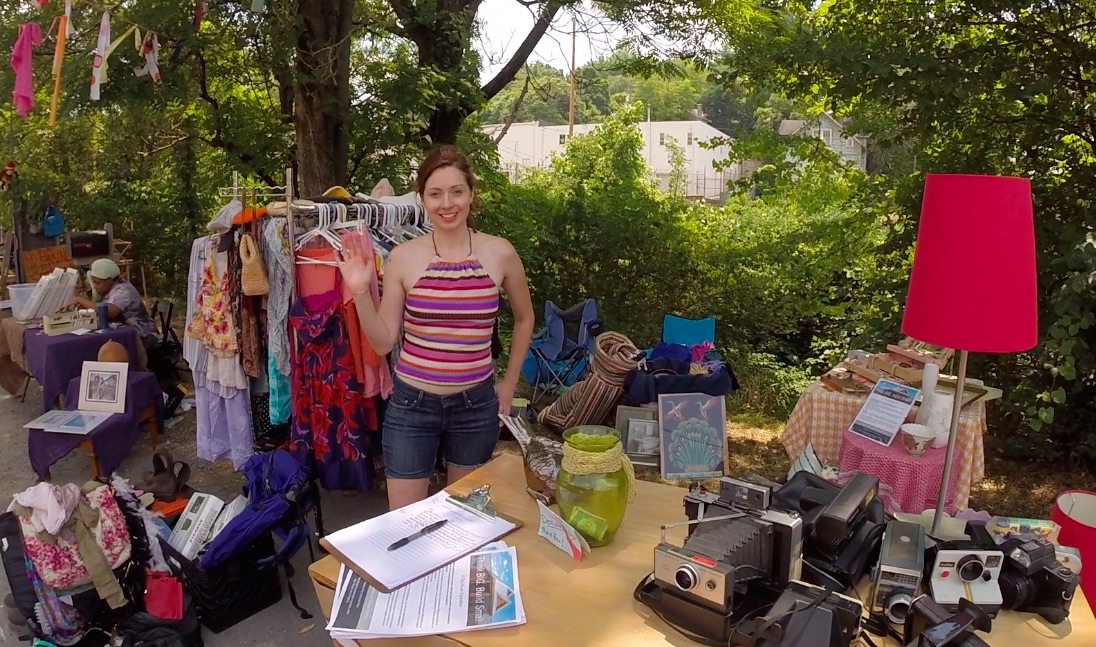
Selling many of our downsized belongings at a flea market.
Learning to Let Go
It's inarguable that the vast majority of us have become all too reliant on our possessions. From smartphones to trendy clothes, consumerism has taught our society to be ever reliant on material goods to live a "successful life".
What if we learned to let our unsustainable shopping habits and the bulk of our unused stuff go?
Marie Kondo is a big name on Netflix right now. In her popular show, she teaches people who hoard how to declutter their homes and live with less. Her ultimate rule is that if an object doesn't "spark joy" – and genuine joy at that – then it has to go.
It doesn't necessarily have to go to waste, however. Keeping in with sustainability, why not donate it to a local charity shop or a homeless shelter? Practice what you preach on all levels!
"You have to unplug from the machine and take back your life and learn to live with less and sit under trees and read the great minds and create art and listen to music and sound your “barbaric yawp over the roofs of the world.”
Quit doing things you hate to impress the faceless people among us.
Decondition yourself from culture, quit suppressing your uniqueness, travel to places that frighten you a bit, learn to embrace silence and solitude a few times a week."
-Erik Rittenberry, from The American Life Is Killing You
Living with Less isn't Living with Nothing
Our final lesson of today is that living with less does not mean you live with nothing. Only a small minority find what we like to call, "spartan minimalism" fulfilling—owning the bare minimum, like just two sets of clothes.
What about the idea of curating your belongings to what you need and what you truly love?
People cling to material wealth because they're afraid of having nothing – but if you learn to let go of a lot of that, you'll discover that the feeling of success and home doesn't come from what you own.
It comes from who is around you, and the energy you put out into your own space. It comes from the world around you and how you choose to see it.
Living with less isn't living poorly. It can actually open you up to living a "richer" life, crafted around what truly matters, like to quality of your relationships, regular self-care practices, and even more experiences.
Minimalism simply teaches you to appreciate everything a little bit more.
That increased gratitude is one big reason why we think living tiny, for at least a season of your life, is incredibly worthwhile.
Find a Tiny Living Event Near You!
Stay informed about upcoming community events all over the country and world.
Our comprehensive event calendar features tiny home festivals, documentary showings, advocacy meetings, workshops & MORE!


